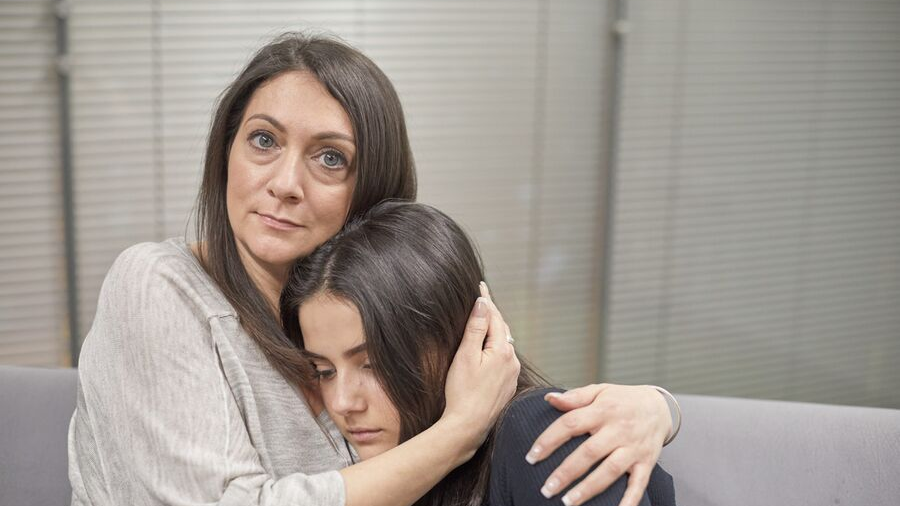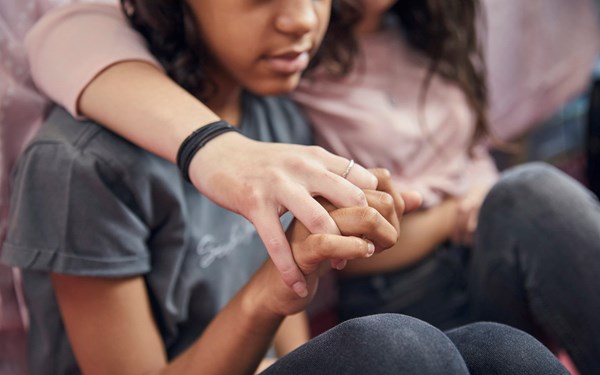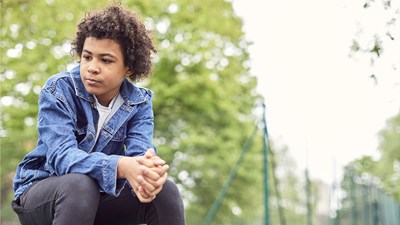Healthy sexual development in young people
It’s important to understand what healthy sexual development looks like in children as they grow. Children’s sexual development is shaped by their environment, experiences and what they see. Children now are more likely to see or come across sexual images and videos at a younger age than their parents would have done. This can be through films, music videos or online, including pornography.
Every child is different and may become interested in relationships, sex and sexuality at slightly different ages. But as children get older, the way they express their sexual feelings changes. It’s natural for teenagers to show interest in sex and relationships for example, or for children to be curious about the changes that happen during puberty.
Many sexual behaviours children and teenagers show as they grow up are normal and healthy, so long as they’re not causing harm to others or to the children themselves.
- If you work or volunteer with children and young people, read our guidance on how to identify and respond to typical, problematic and harmful sexual behaviour on NSPCC Learning.
Worried about a child?
You can contact the NSPCC Helpline by calling 0808 800 5000, emailing [email protected] or completing our report abuse online form.
If you're worried about a child's sexual behaviour
It can be really hard for parents to know when their child’s sexual behaviour is becoming inappropriate or harmful. You may start to worry about a child’s sexual behaviour through comments they make, or you might see sexualised behaviour between your child and a friend or peer.
Sometimes children and teenagers can develop sexual behaviour that’s inappropriate for their age. Growing up and going through changes like puberty can be difficult and can be an emotional time for teenagers. Some children may make clumsy attempts at sexual behaviour that are upsetting for others and they may not understand what is and isn’t appropriate.
Signs a child's sexual behaviour could be unhealthy or inappropriate include:
- showing sexual behaviour that’s inappropriate for their age
- sexual behaviour that’s becoming a compulsive habit or happening frequently
- behaviour using force, aggression or pressuring others
- engaging in behaviour that upsets other children involved
- sexual interest in adults or children of very different ages to their own
- if it’s affecting their school work, relationships or social life
- using pornography or sending explicit images online, particularly without someone’s consent
- any sexual behaviour that’s harmful to themselves or others.
If your child's behaviour is inappropriate or unhealthy
Realising or being told that your child's sexual behaviour is inappropriate or unhealthy can be really hard to cope with. Especially if you find out your child has sexually abused another child. It is really important that you get professional help if this has happened as soon as possible. As a parent, you may feel lots of difficult emotions if this happens, such as shock, disbelief, distress, anger or anxiety. This is completely understandable.
Although it’s really hard, try to remember that children often don’t understand that their behaviour is inappropriate or harmful. Sometimes children may have been sexually abused themselves and not understand that what happened to them was wrong. Try not to panic or shout at them, and remember that they’re still your child.
If your child has been showing signs of sexually inappropriate behaviour or has sexually abused another child, it’s important to get professional support. We run a therapeutic service for children who are at risk of harming other children sexually, called National Clinical Assessment and Treatment Service (NCATS).
It’s important to talk to your child about their behaviour and tell them about what is and isn’t appropriate. Try to stay calm as your body language and tone can make a difference.
It's never easy to start a serious conversation with a child. Try to pick a time it’s just you and them and find neutral and relaxed space to talk, like in the car or on a walk or a bike ride. If a child doesn’t want to talk, sometimes it can be helpful to have several shorter or ‘bite-sized’ conversations with them instead.
When you talk to your child about anything difficult, it’s important to show good listening skills and that you’re there to support them and judge them. This can also make it more likely that they’ll feel able to talk to you if something has worried or upset them.
Some ideas to help you start a difficult conversation include:
- try and make the conversation relevant to something you’ve just been doing, for example if you’re watching a film where one of the characters fancies or is dating someone.
- talking to them about sex and relationships if they’ve been learning about them in school
- for younger children, you could pick a character in a story book, and ask your child to imagine how they would feel if the character acted in a way that was inappropriate.
- try to tell them something positive as well when you tell them how their behaviour is inappropriate.
- ask open questions that don’t have yes or no answers, and tell them they can ask you questions too.
- try asking them where they saw or learned the behaviour from, which may help you understand what’s been causing it.
If your child has been sexually abused by another child
Sometimes children who’ve experienced sexual abuse from other children may not realise what’s happened to them or know that it’s wrong, even if it makes them feel unhappy or unsafe.
Reasons children may find it hard to recognise or talk about sexual abuse include:
- feeling unsure if they agreed or gave consent for sexual activity
- feeling guilty about what happened or like they are somehow to blame
- the child who committed the abuse was a friend or partner
- they had been drinking alcohol or sexting
- they’re worried that they won’t be taken seriously
- they’re frightened of what the other young person will do if they speak out.
How to support your child
 Finding out your child has been sexually abused by another child can be distressing and really hard to cope with. If this has happened to your child, it’s really important to get them the help and support they need.
Finding out your child has been sexually abused by another child can be distressing and really hard to cope with. If this has happened to your child, it’s really important to get them the help and support they need.
We run therapeutic services for children who’ve experienced sexual abuse:
- The Lighthouse.
- Letting The Future In.
We also have advice on children’s mental health, which can be helpful if your child is struggling with depression, anxiety or self-harm after experiencing abuse.






